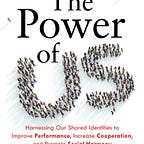Why we identify with animals and what it tells us about the potential scope of human empathy
Walter Palmer eyed the black-maned predator. Ensconced in a hunting blind near Hwange National Park, the Minnesotan dentist and big game hunter lifted his bow and took aim. Moments later, he released an arrow — and unleashed consequences that reverberated around the world.
In the following months, wildlife services would add new species to their lists of endangered animals. Airlines would stop transporting hunters’ trophies. Many thousands of people would write checks, send money orders, and put cash in envelopes to support wildlife research and conservation.
Palmer himself would become the target of a deluge of hate mail. “How [can] the person who puts innocent creatures through slow and painful death be trusted with my mouth?” read a Yelp review for his dental practice.
What did Walter Palmer do to produce such an extraordinary chain of events?
He shot Cecil the Lion.
At the time he was killed in 2015, Cecil was the most famous lion in Zimbabwe, a magnificent 12-year-old feline prized as a tourist attraction and as a subject for research because of his comfort around humans.
As it turned out, Palmer’s initial shot wounded Cecil but did not kill him. Cecil crawled through the scrub, and death only came an agonizing eleven or twelve hours later when Palmer tracked and shot him for the second time.
Humans have an astonishing capacity for cruelty. But we also have an amazing capacity for generosity, concern, and kindness. And whether people are cruel or kind — or perhaps we should say, to whom they are cruel or kind — is very often determined by the boundaries of their identities.
To big game hunters, lions (not to mention elephants, rhinos and other impressive animals) are firmly placed in an out-group category. They are classified as prey, trophy, or dangerous beast.
To animal rights activists, these and most (or even all) other species are understood to belong to an in-group shared with humankind. And while most people probably have beliefs that fall somewhere in between, when they hear about Cecil’s story, it’s easy to feel a shared identity with the lion and nothing but disdain for the villainous dentist.
Feelings of common identity can cause us to extend care far beyond our relatives and social circles to other people — even to other species — separated from us in time and space.
This helps explain why bystanders intervene when a stranger is in distress. But it also motivates people to lend a hand or reach into their wallets to help animals like Cecil.
After Cecil’s killing, researchers surveyed people who donated to the Wildlife Conservation Research Unit (WildCRU) at Oxford University, one of the groups that had studied Cecil. They found that intense emotional reactions to Cecil’s death triggered feelings of strong identification with the lion and the research unit — and that these feelings persisted over time among people who continued to think about Cecil. Ultimately, WildCRU received more than $1 million in donations following the lion’s death.
New research from Catherine Amiot and her colleagues finds that there are three elements of identification with animals. People feel a sense of solidarity with animals (feeling connected to animals and having a greater desire to help them), believe they are similar to animals (perceiving that animals are similar to humans and have humanlike traits), and have a sense of animal pride (feeling a competitive and hierarchical spirit where animals are superior).
These are the key ingredients for determining if people are willing to help animals, feel a sense of moral concern for their welfare, and try to recognize them with a positive form of endorsement.
What is striking about our identification with animals is how similar it is to our identification with other humans. If we are able to identify with a lion on the other side of the world, surely we posses the capacity to empathize with people who are suffering in these same nations. As humans, harnessing our capacity for identification offers hope for expanding our circle of empathy and care for others who are radically different from us in every respect.
If you want to get smarter about groups and be a part of smarter groups, join our free weekly newsletter on The Power of Us.
